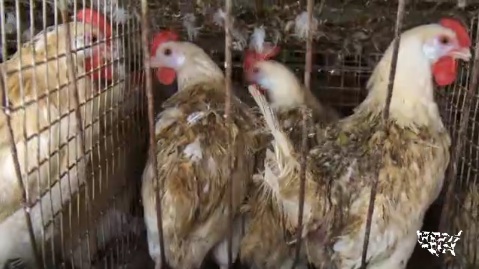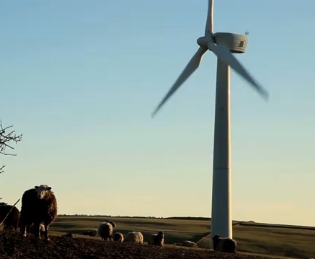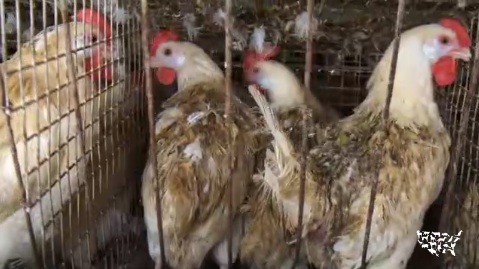 A horrific scene from a Humane Society undercover video.Photo: Humane Society of the United StatesI was privileged this week to participate in a New York Times Room for Debate discussion on the government’s vs. consumer’s role in “Preventing Cruelty on the Farm,” inspired by the paper’s coverage of the spate of ag-gag laws pending in several states (although it appears Florida’s ag-gag bill is now dead). Our discussion featured an excellent lineup of experts including Nicolette Hahn Niman, Temple Grandin, Joel Salatin, law professor Joseph Vining, the Cato Institute’s Walter Olson, economist Daniel Sumner, and Wayne Pacelle, president of the Humane Society of the United States (producer of some of those nasty undercover videos that are currently the bane of badly behaving factory farmers everywhere).
A horrific scene from a Humane Society undercover video.Photo: Humane Society of the United StatesI was privileged this week to participate in a New York Times Room for Debate discussion on the government’s vs. consumer’s role in “Preventing Cruelty on the Farm,” inspired by the paper’s coverage of the spate of ag-gag laws pending in several states (although it appears Florida’s ag-gag bill is now dead). Our discussion featured an excellent lineup of experts including Nicolette Hahn Niman, Temple Grandin, Joel Salatin, law professor Joseph Vining, the Cato Institute’s Walter Olson, economist Daniel Sumner, and Wayne Pacelle, president of the Humane Society of the United States (producer of some of those nasty undercover videos that are currently the bane of badly behaving factory farmers everywhere).
What I found interesting was the basic consensus that factory farming should be both open to public inspection and held accountable for its routinely abusive practices. Even Olson of the Cato Institute, a right-wing and very business-friendly think tank, supported the idea that the states should be allowed to restrict abusive practices and consumers could decide what’s best.
The only off-note, in my opinion, came from economist Sumner who warned that Californians would be sorry for their support of a recent law that requires all eggs sold in California to be cage-free by 2015. He made the patently ridiculous argument (which only an economist could love) that since the more expensive cage-free eggs are already available in California and less popular, Californians will be miserable when the cheaper, inhumanely produced eggs disappear from store shelves in four years time.
Sumner is, as economists are wont to do, assuming that consumers have full information and are taking humane treatment of animals into account when buying eggs. Most consumers, of course, have no idea how their food is produced. If anything, the fact that the new law will cause egg prices to go up in California suggests the state should invest in a public awareness campaign to explain exactly why. If full awareness of the routine suffering imposed by the production of these “outlaw” eggs still leads to the open revolt against “high” egg prices, then perhaps it will be time to worry.
My sense, however, is that cage-free eggs are actually benefiting from a “perceived value” over their conventional counterparts which allows producers to charge an amount that exceeds the additional costs of production associated with cage-free farming. In other words, it’s a market inefficiency that will be fixed by requiring all eggs sold in California to be produced more humanely. When the playing field is leveled, it’s entirely possible that some of that price premium will magically disappear. Of course, the typical economist assumes what is, ought to be. So perhaps this possibility never occurred to Sumner. Well, anyway, now he has something new to think about.
So go read the debate. I’ll just take the opportunity to quote a bit from my own contribution, where I observe that “more humane” and “humane” production are two different things and that it will indeed need to be consumers who take the lead. Also, baseball:
And so we must turn to consumers as the best hope of reform. But what consumers must come to believe is not that they should pay more for “humane” meat. It’s that the industrially produced meat they are now eating is nothing short of diseased and not worth buying at any price — why else must the animals be routinely pumped full of antibiotics and so-called “growth promotants” in order to survive?
I am often struck by the oddity that the sport of baseball is too pure for the use of performance enhancing substances — but the food we eat isn’t. That is the inconvenient truth of our food system. But I’m not entirely sure that Americans are willing to accept it.



